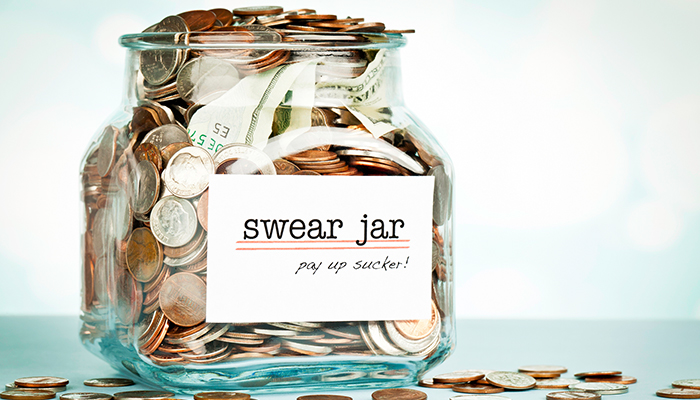In traffic, spectating sport, at your laptop - it’s something many people do regularly.

Mind your language!: Profanities are not a new phenomena but have been used for centuries, says Dr Wilson.
Swearing - using taboo words that refer to sex or deprecate someone’s religion or relatives - happens in many different cultures. While people often swear to intentionally offend someone, when they are angry or frustrated, they also use these words to intensify meaning or in mateship - as a way to be part of a group with the shared language of swearing.
Swearing dates back centuries. The characters in Chaucer’s Canterbury Tales written in the 14th century use taboo words to refer to genitalia. The c-word is used in several instances.
A symbol of mateship and solidarity
In his research on rugby players in New Zealand, Dr Nick Wilson, lecturer in linguistics, found that every team member he recorded swore and that swearing demonstrated high solidarity in the team environment. The captain swore most, especially in the pre-match huddle to motivate and energise the team.
Swear words... are frequently used as intensifiers to increase offence but they are also used positively
“When I broke their interaction down into commonly occurring words used, I found that ‘the F-bomb’ was the third most common word in pre-match talk - and that includes words such as ‘a’ and ‘the’,” he says.
“The F-bomb is such a unique word that can be used in any position in a sentence; it is very hard to classify it as just a verb, noun, adverb, or adjective. There are almost no rules for its usage.”
Swear words have their literal meaning which can be powerfully graphic and are frequently used as intensifiers to increase offence but they are also used positively.
“You could say for example ‘that cake was F-bomb tasty’ and that would be positive,” says Dr Wilson. “It wouldn’t be a derogatory statement about the cake. It wouldn’t be intended to slur the person who made the cake; in fact it would be a compliment. But someone could be offended by it simply because they are offended by swearing.”
How to add extra shock value
Then there are the different cultural contexts for swearing. It is more widely acceptable in countries such as Australia, New Zealand, Ireland and Scotland, to a lesser extent in England and much less in the US.
In Swedish and French for example, many people incorporate English swear words to add an extra dimension of taboo by swearing in another language, Dr Wilson says. “To be able to swear appropriately in another language is a really good marker to show you have learned how to use that language in a particular cultural environment.”



